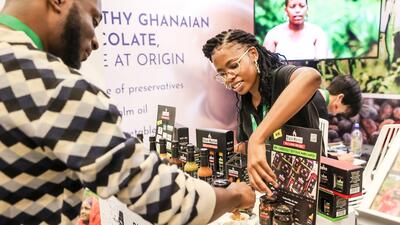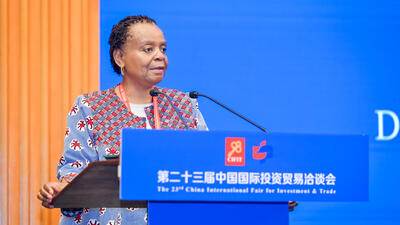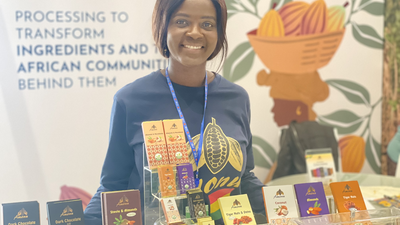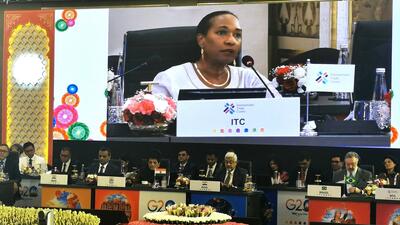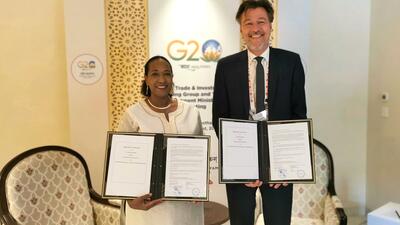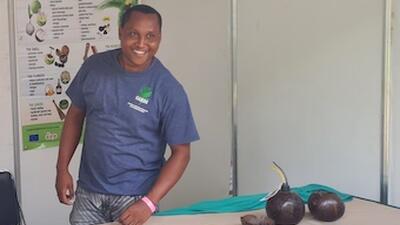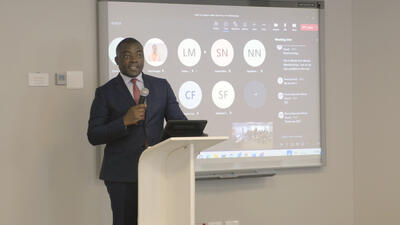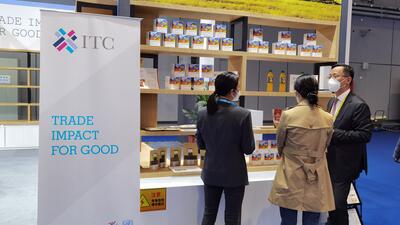ITC Executive Director: ‘A win at Bali is a win for the development agenda’
Trade should play a bigger role in the global development agenda, but for that to happen a deal will be needed at the World Trade Organization’s Ministerial Conference at Bali, Indonesia, in December. That was the unanimous message from panellists at a session at the WTO’s Public Forum entitled ‘Implications of potential Bali issues for the post-2015 development agenda and the development of dynamic partnerships’ on 3 October.
Arancha González, Executive Director of the International Trade Centre, said that trade as a platform for growth, development, poverty reduction and employment must be an important element of post-2015 development. She stressed that for this to happen the role of small and medium-sized enterprises must be recognized as they are the growth engines of the future.
Ms González said that a clearer link must be made between the upcoming WTO Ministerial Meeting and the United Nations’ Post-2015 Development Agenda. ‘A win at Bali is a win for the post-2015 development agenda,’ she said. ‘No delivery at Bali could potentially slow down the important insertion of trade into the post-2015 dialogue.’
The Post-2015 Development Agenda is set to provide focus for global development following the 2015 deadline set for the Millennium Development Goals (MDGs). While the MDGs – which range from halving extreme poverty to halting the spread of HIV/AIDS and providing universal primary education – set milestones for global and national development efforts, the Post-2015 Development Agenda is expected to also focus on the means that will allow countries to reach these goals.
Christiaan Prins, Head of European External Affairs at Unilever, said that the Post-2015 Development Agenda was the first time business had been consulted in setting United Nations targets. ‘What big business can bring to this is clarity and impact,’ he said. ‘Every day we communicate with millions of consumers – we can bring about change and we can bring about change for consumers.’
Acknowledging that an agreement at Bali would bring back credibility to the WTO, Mr Prins also urged the trade body to show more patience in its efforts to push through reform. ‘Still, we need to recognize the importance of trade policy to development, which is also a growth agenda,’ he said. ‘But there is also a strong case for including a sustainability chapter in the [Bali] agenda. That way trade can help push for sustainability.’
Katherine Hagen, Executive Director, Global Social Observatory (GSO), a Geneva-based organization focusing on social issues, pointed out that it was important to avoid ‘thematic silos’ when formulating the new development agenda and the people need look beyond their own immediate expertise or focus are. She added that recent analysis of the MDGs had concluded that much has yet to be achieved, especially for trade. ‘There is now a need to link trade as a way of lifting people out of poverty. At Bali trade facilitation will be particularly important for SMEs and it must be a priority to link the development agenda with free trade at the WTO,’ she said.
Chiedu Osakwe, Director of the WTO’s Accessions Division, drew attention to the importance of trade policies. ‘Trade facilitation will be central in creating jobs, but in the post-2015 agenda you will also need competition policies,’ he said. ‘It is also clear that you will need coherence between international organizations in the post-2015 development agenda and SMEs have to be supported as they represent the real opportunities for growth.’
Adding impetus to that view, Ms González said: ‘SMEs are not only employment generation vehicles, but they are innovation incubators and entrepreneurial laboratories. The question is whether we as a global community have really understood the potential inherent in SMEs as catalysts for delivering on the post-2015 transformative agenda.’




